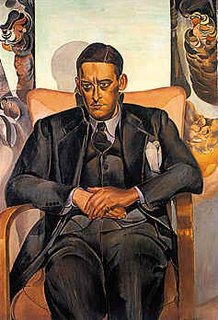 Eyewear (i.e. I) attended last night's readings, at The Bloomsbury Theatre, featuring the ten poets short-listed for the 2005 annual T.S. Eliot Prize - to be decided this very day - more on that decision later this week.
Eyewear (i.e. I) attended last night's readings, at The Bloomsbury Theatre, featuring the ten poets short-listed for the 2005 annual T.S. Eliot Prize - to be decided this very day - more on that decision later this week.They read in the following order:
Sinead Morrissey; Pascale Petit; John Stammers; Carol Ann Duffy (absent, read by Elaine Feinstein); Alice Oswald; Break; Polly Clark; Gerard Woodward; Sheenagh Pugh; Helen Farish; and David Harsent.
It is an impressive list, and they all read well, except for Duffy, who was conspicuous by her absence. But Ms. Feinstein did a fine job of covering for her.
This competition is too close to call.
I will make a few remarks on the poets. I feel that any of these poets could win this year, without much damage being done to the sterling reputation of this competition. I don't envy the judges at all.
John Stammers is the kind of poet T.S. Eliot himself would have enjoyed, during his early period, as the use of metaphsyical wit, literary allusion (often to the French, or French-inspired New York School), and urban dandyism is close to his Prufrock persona (updated for the new century, of course).
Pascale Petit is exploring the intersection between the personal and the universal in ways new to English poetry, and is fusing her powerful, disturbing imagery with elements drawn from art, and European surrealism - she has built on the precedent of Plath, and made this dark territory of internal suffering brought outwards, her own.
David Harsent has been one of the few sane, intelligent poetic voices in the U.K. to examine the toxicities of war and violence, and its impact on society and the lone person, during the Iraq crisis, and so has established considerable moral and aesthetic weight for his current work.
Sinead Morrissey has written three or so poems in her new collection, which, for their music, intelligence, feeling and virtuoso use of form, push the writing of verse forward a decade or so.
Polly Clark's sense of style, humour and fresh new perspective on love, and animals, establishes her as one of the best of the younger generation of poets now writing in the U.K.
Carol Ann Duffy's new long series of love poems takes the entire canon of English love poetry and turns it on its head, daringly testing found ideas and cliche, and providing her own sense of beauty. "Tea" is an exceptionally moving poem.
Alice Oswald has adopted the tone, high seriousness and mythical agon of a Ted Hughes, and re-expressed it importantly in terms of 21st century language - at once looser, and more austere - and never as assured, given the complexities of how meaning and language are now known to interlock.
Pugh, Woodward and Farish have each written very succesful lyric poems that explore memory, love, loss, and the human need to establish order in a disordered world, through well-deployed images and often inventive lines and phrases.
Comments